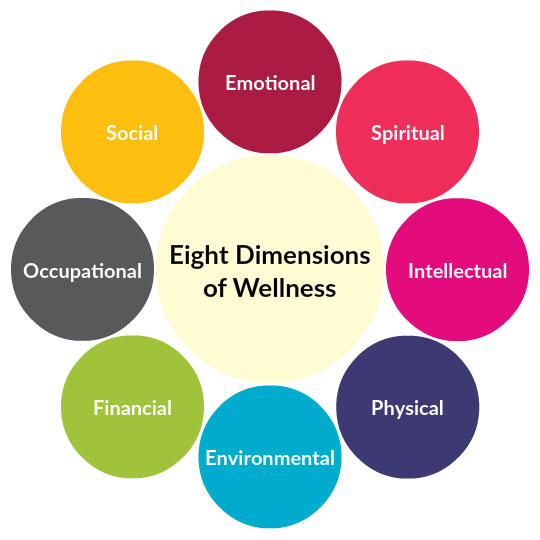Remember to Breathe
We have addressed a lot of academic and student life resources for you to be aware of. But, we have not taken a moment to address your wellbeing - physical, emotional, and psychological. Working through this module you will cover may of the resources provided for students at UGA, and a moment for you to participate in an activity that addresses your wellbeing. Enjoy!
Adjusting to your first semester back after an Academic Suspension can be a lot. So far we have discussed a range of academic support, resources, and strategies to help you in your courses this semester. However, we have not addressed your emotional, mental, and psychological wellbeing as extensively. So we are going to use this module to address what are some resources on campus or things you can do to address your wellbeing.
The UGA Health Center is your one-stop-shop for integrated medical, wellness, and counseling services. Every student is assigned a primary care provider home (Red, Gold, Blue, and Green). They are a fully integrated model which means they treat and recommend services that are unique to each patient's needs, whether that is treating illness, providing wellness resources, counseling, health coaching, and more.
You can depend on this center for medical services, which are fully supported by an on-site lab, radiology department, and pharmacy. Additionally, they provide mental health care and specialty care, ranging from dental and vision to physical therapy, sports medicine, nutrition, counseling, and a full-range of wellness needs!
The UGA Health Center has developed a repository of Self Care resources for you. Please explore this content and see what areas best support you and your needs.
#BeWellUGA is the place to find FREE wellness and prevention programs, events, and services hosted by the University Health Center. Check out all the amazing classes and services geared towards helping UGA students thrive physically, mentally, and socially.
- Where can I find free workshops, classes, or services led by clinicians or health educators that can provide me with tools to manage my stress, anxiety, relationships, etc.?
- Do you have any virtual programs, resources, or services?
- Where do I obtain counseling and therapy?
If you have spent any time on the internet or social media platforms recently, you have most likely seen the words “self-care” at least once. Although the concept is crucial, it has, unfortunately, become another buzzword that some people equate to taking baths and meditating (two valid forms of caring for one’s self). Wellness/self-care/personal care is multi-faceted and apply to different aspects of our lives. If warm baths and meditation do not work for you, how else do you and can you take care of yourself?
We are going to use the Self-Care Starter Kit provided by the University of Buffalo School or Social Work. The Self-Care Starter Kit℠ was initially developed for UB Social Work students, but it is our hope that these resources will be useful for students and professionals alike. Although the information does not address all that goes into developing the skills of self-care, it does begin the journey.
As a student at the University of Georgia, you are expected to balance your coursework, internships, work responsibilities, and home life. As a professional, you face many of these same expectations and challenges. Self-care is a practice that will help you limit the stresses and strains that you are bound to encounter in your academic and professional career and cope with those that do arise.
On the Introduction to Self-Care website, please work through the provide content on What is Self-Care?, Identify the Aims of Self-Care, explore the Overview of Resources provided on this topic, and read the encouraging words for students.
To develop your self-care plan, you will identify what you value and need as part of your day-to-day life (maintenance self-care) and the strategies you can employ when or if you face a crisis along the way (emergency self-care).

DaisyFig, CC BY-SA 4.0 <https://creativecommons.org/licenses/by-sa/4.0>, via Wikimedia Commons
There is no “one-size-fits-all” self-care plan, but there is a common thread to all self-care plans: make a commitment to attend to all the domains of your life, including your physical and psychological health, emotional and spiritual needs, and relationships.
While exploring the Self-Care Starter Kit, pay extra attention to steps “2” and “3”. These steps help you reflect on specific ways things that you are doing well or things you are not doing to maintain your wellness, while giving you space to reflect on new things to incorporate into your care plan. This list covers everything from your physical to relational wellbeing.
This item has a Creative Commons license for re-use. This Creative Commons BY-NC-SA license means that you may use, remix, tweak, and build upon the work for non-commercial purposes as long as you credit the original creator and as long as you license your new creation using the same license. For more information, please go to Creative Commons licensing.
